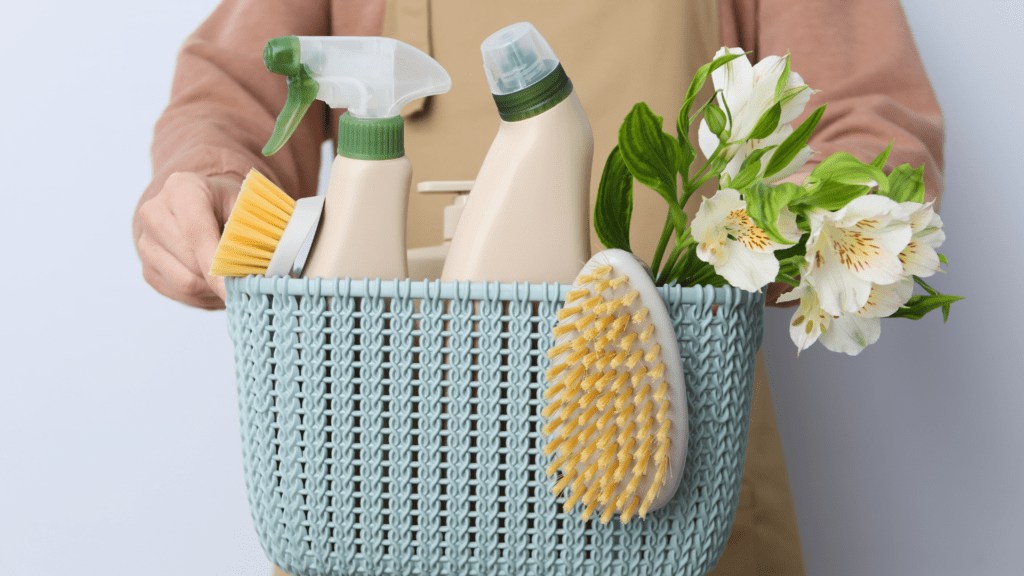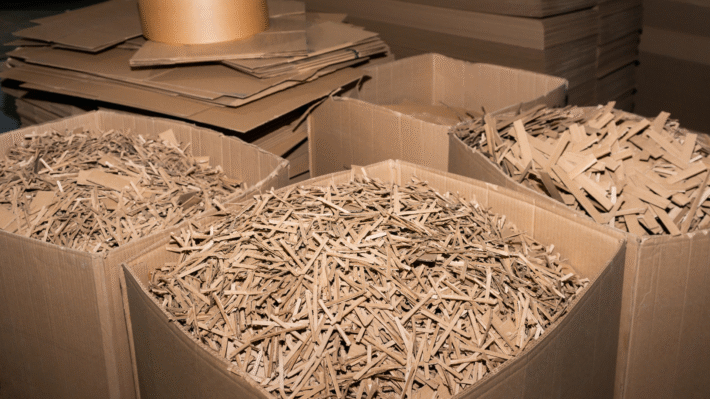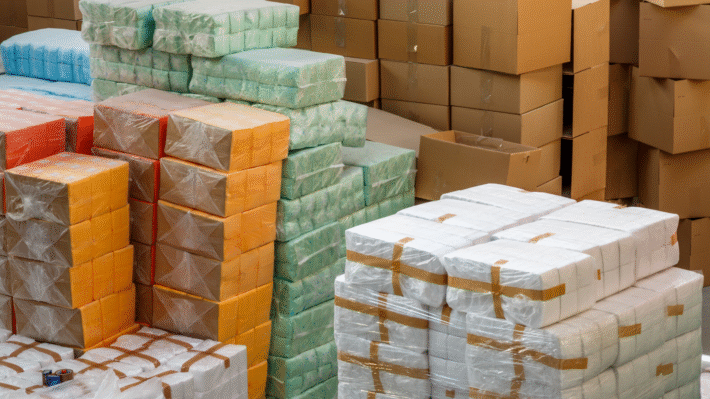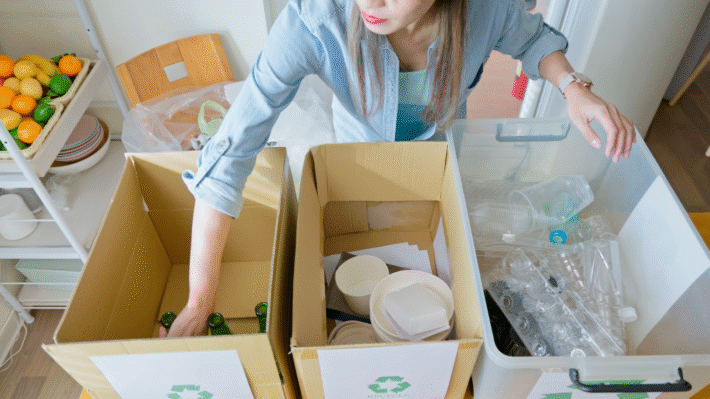Green Cleaning Products: Plant-Based Solutions for a Healthy Home

Imagine the crisp, invigorating scent of a lemon as it slices through the air, fresh and inviting, contrasting with the harsh, pungent smell of chemicals that makes your eyes water. This vivid sensory difference highlights a growing problem: traditional cleaners are full of chemicals that can harm our health and the environment. But here’s the great news: we don’t have to put up with it any longer! Plant-based cleaning products are stepping in as the heroic alternative. They’re safe, effective, and sustainable, offering a ray of hope for those seeking a healthier home and planet.
These vibrant, natural solutions tap into the incredible power of plants to clean and refresh our spaces, without the need for toxic chemicals. So, let’s explore the benefits of plant-based cleaning and embrace a future where our homes can be both sparkling clean and friendly to the earth.
Chemistry of Clean
Science of Dirt
Types of Grime
Grime can be sticky or oily, dark or dusty. It clings to surfaces like a little pest. This grime can come from food spills, dust, greasy fingerprints, and even mud. Understanding grime types helps us choose the best way to clean it up.
This is a note about the text: Different grime needs different cleaners.
Understanding Adhesion
Adhesion is how grime sticks to surfaces. Some dirt clings tightly, while others sit loosely. Hard-to-remove spots need a good scrub or a powerful cleaner. Knowing how grime sticks helps us pick the right way to make things shine.
Adhesion makes it tricky to wash away dirt sometimes.
Conventional Ingredients
Common Chemicals: Ammonia, Bleach, Phosphates
Ammonia is used to clean windows. It smells harsh and can irritate. Bleach works to make white things brighter but can be dangerous if mixed with other cleaners. Phosphates help cut through grease but aren’t so kind to Mother Nature.
Health and Environmental Risks
These chemicals are not just tough on dirt; they can be tough on us. Breathing fumes from these cleaners can make some people sick. They can also leave traces in rivers, causing problems for fish and plants.
Long-Term Impacts
Using these chemicals for a long time can hurt our land and air. The effects don’t just vanish; they linger and harm animals, plants, and even our health.
Power of Plants
Bio-Based Cleaning Agents
Plants have natural fighters against dirt. They give us bio-based cleaning agents that are safe. No hard chemicals—just the power of greens!
From plants to our hands, these bio-agents are at work cleaning our homes.
Natural Cleaning Properties
Plants are packed with cleaning properties. Take lemon and vinegar, they naturally cut grease and kill bad germs, making surfaces sparkle and smell fresh.
History of Plant Use for Cleaning
For many years, people have used plants for cleaning. Our ancestors used herbs and shrubs to clean and keep homes pure. These age-old ways still help us today keep our houses fresh and lovely.
History shows us that nature knows best when it comes to cleaning.
Plant-Based Powerhouses
When it comes to cleaning, plant-based powerhouses offer nature’s best solutions. They’re strong, natural, and kind to our world. Let’s dive into the magic they hold.
Essential Oils
Essential oils are like the superheroes of natural cleaning. From the lovely lavender to tangy tea tree, they have many awesome uses.
Versatility in Cleaning
Essential oils are versatile. They can freshen a room, clean surfaces, and even fight grime. A few drops can make a big impact, leaving your home smelling like a garden.
Disinfecting and Deodorizing
Not only do they smell great, but essential oils can help disinfect and deodorize, too. Tea tree oil is tough on germs while leaving behind a cheerful scent. They are perfect for freshening up any space.
Safe and Effective Use
Essential oils are safe if used wisely. Just remember to mix them with water or other natural ingredients. They are strong, so a little goes a long way in keeping your house shiny and your air light.
Natural Surfactants
Natural surfactants help soap mix with water to clean dirt and grease away. They are key in making plant-based cleaning products effective.
Saponins: Soapwort and Soap Nuts
Soapwort and soap nuts are rich in saponins. These plants create gentle suds without harsh chemicals. They’re like nature’s bubbles for soft and safe cleaning.
Plant-Derived Options
Other plant-derived options include coconut and palm oils. These oils create effective cleaning action, scrubbing away dirt while being extra kind to our planet.
Acids & Alkalines from Nature
Acids and alkalines from nature are like secret tools. They tackle tough spots with ease, making them great for clean-ups.
Vinegar as a Disinfectant
Vinegar is a fantastic disinfectant. It’s slightly acidic, which helps break down sticky gunk and germs on surfaces. A splash goes a long way.
Citrus for Degreasing
Citrus fruits like lemons and limes cut through grease like magic. They add a fresh scent while making your counters shine bright.
Baking Soda’s Multiple Uses
Baking soda is an all-around champion. It can scrub, deodorize, and keep spaces fresh. It’s mild but brilliant in tackling tough tasks.
Enzymes and Other Botanical Allies
Some botanical allies break down dirt at a deeper level. They’re the quiet workers behind sparkling surfaces.
Plant-Derived Enzymes
Enzymes from plants help break down proteins and grease. They work well on fabrics and sensitive surfaces, providing a gentle cleaning touch.
Aloe Vera and Witch Hazel
Aloe vera and witch hazel are gentle on skin but tough on dirt. Aloe can soothe as it cleans, making it perfect for those sensitive spots, while witch hazel’s cleaning power is both refreshing and effective.
These plant-based options prove that nature has everything we need to keep our homes clean, safe, and healthy. Let’s use nature’s power wisely and kindly.
Health Benefits: A Breath of Fresh Air
Reducing Toxic Load
Minimizing Harsh Chemical Exposure
Minimizing Harsh Chemical Exposure is a big win when using plant-based cleaners. These cleaners don’t include scary chemicals like ammonia or bleach. When we use natural products, we help keep our homes safe from harmful stuff. This means our air is cleaner to breathe in every day. Imagine scrubbing your countertops without needing to cover your nose!
Avoiding VOCs
Avoiding VOCs is another plus. VOCs, or volatile organic compounds, are bad chemicals found in many regular cleaning products. They can mess with the air and might even cause health issues. But with green cleaners, you skip all that trouble. Your home can smell fresh without any bad chemicals.
Improved Indoor Air Quality
Benefits for Respiratory Issues
Improved Indoor Air Quality is like getting fresh air inside! For people with respiratory problems, clean air is super important. Using green products keeps the air nice and keeps lungs happy, especially for those with asthma or allergies.
No Synthetic Fragrances
“No Synthetic Fragrances” means no fake smells. Green cleaners use essential oils instead of synthetic scents. This means that the air smells nice without being fake or harsh. Synthetic smells can irritate our senses, so skipping them is a great choice.
Gentle on Skin
Reduced Irritation and Allergies
Being Gentle on Skin is a promise of plant-based cleaning. Chemicals in traditional cleaners can cause red and itchy skin. When using natural products, there are fewer risks of skin trouble. It’s easier on the body!
Safe for Sensitive Skin
Safe for Sensitive Skin means everyone can use it. Even those with sensitive skin can enjoy softer hands and no itchiness. Babies, kids, and even adults benefit from products that are kind to the skin.
Safer for Vulnerable Groups
Children, Pets, and Elderly
Safer for Vulnerable Groups like children, pets, and elderly folks is key. These groups need special care because their bodies can be more sensitive to chemicals. Green cleaning solutions are gentle and kind, making homes safer for everyone.
Aromatherapy Benefits
Mood Enhancement from Essential Oils
Aromatherapy Benefits come from essential oils. They lift the mood and bring calmness. Imagine cleaning with the scent of lavender or lemon—it’s like a spa day at home! Essential oils not only clean but also bring a smile, making chores a bit more fun.
DIY Green Cleaning Recipes
Green cleaning at home is simple and fun! Let’s explore different recipes you can use to keep your home clean and safe.
All-Purpose Wonders
Vinegar, Water, and Essential Oil Blends
Vinegar is a cleaning champ! Mix vinegar and water in a spray bottle. Add a few drops of your favorite essential oil for a nice smell—lemon or lavender works great. Use this mix to wipe down surfaces. It’s perfect for countertops and other places that need a quick clean.
Sparkling Surfaces
Citrus-Infused Cleaners for Glass and Counters
Citrus fruits are natural cleaners. Squeeze juice from lemons or oranges, and mix it with water. This citrus cleaner works wonders on glass, leaving no streaks. It also cuts through grime on counters. Enjoy the fresh smell as you clean!
Bathroom Bliss
Baking Soda and Vinegar for Scrubbing
Scrubbing the bathroom can be easy without harsh chemicals. Baking soda is a gentle scrubber. Sprinkle it on surfaces like sinks or tubs. Add a bit of vinegar; it will bubble up, which helps clean stubborn stains. Rinse with water, and see the sparkle!
Tea Tree for Mold
Mold loves to hide in bathrooms. Tea tree oil is good at keeping it away. Mix a teaspoon of tea tree oil with water in a spray bottle. Spray it on moldy areas, let it sit, then wipe it clean. No more moldy spots, and it smells fresh!
Floor Care Naturally
Castile Soap-Based Solutions
Castile soap is great for floors. Mix a bit of castile soap with warm water in a bucket. Mop your floors with this solution. It cleans well and leaves the floor looking shiny. Plus, it’s safe for you and the environment.
Laundry Love
Soap Nuts, Washing Soda, and Essential Oils
Soap nuts are a natural way to clean clothes. Put a few in a cotton bag and toss them in with your laundry. For extra cleaning power, add washing soda. If you want a pleasant scent, include a few drops of essential oils. Fresh, clean clothes without harmful chemicals!
Creative Concoctions
Fruit Peel Enzyme Cleaners
Fruit peels can make great cleaners. Use orange peels and mix them with water and sugar. Leave it in a jar to ferment for a few weeks. The enzymes break down dirt. It’s fun to make, and it cleans well!
Herb-Infused Vinegars
Herb-infused vinegar not only cleans but smells delightful. Mix vinegar with herbs like thyme or rosemary. Let it sit for a couple of weeks. After straining out the herbs, use this infused vinegar to clean any surface. It’s a refreshing and effective solution!
These simple recipes will leave your home clean and smelling lovely. Plus, they are safe for your family and the Earth. Enjoy your green cleaning journey!
Choosing Commercial Green Products
When it comes to keeping your home clean and green, picking the right commercial products can be a bit tricky. But don’t worry—I’m here to help you choose the best options for a healthier home and planet!
Decoding Labels
Understanding Ingredients
To choose wisely, you need to start by understanding ingredients. Flip the bottle around and look at what’s in there. If you see names like “sodium lauryl sulfate” or “triclosan,” you might want to think twice. Aim for products with easy-to-read names. Ingredients like citric acid and plant-derived oils are your friends. They are not only safe but also effective in cleaning.
Avoiding Harmful Chemicals
Avoiding harmful chemicals is important. Many cleaners sneak in nasty stuff like phthalates, parabens, and synthetic fragrances. These can be bad for your health and the environment. Whenever you see long, complicated words that you can’t pronounce, it might be best to steer clear. Look for labels that say “no parabens” or “free from phthalates”. These are usually safer bets.
Certifications to Trust
EcoLogo, Green Seal, USDA Organic
Now, let’s talk about certifications to trust. Think of these as green thumbs up from experts. EcoLogo, Green Seal, and USDA Organic are top ones to look for on the package. They mean the product has been checked out for being better for the environment and sometimes even for being safer for you.
Top Brands Spotlight
Highlighting Reputable Natural Companies
In the world of top brands, some names shine brighter. Seventh Generation, Mrs. Meyer’s, and Ecover are all known for their great green products. They use better ingredients and have strong commitment to safety. These companies are like green heroes, making it easier for you to choose what’s right and safe.
Cost-Effectiveness
Concentrates and Bulk Options
Being green doesn’t have to break the bank. One way is to choose concentrates or bulk options. Concentrates let you add water at home, which means you get more product for your money. Buying in bulk reduces packaging waste and usually drops the price per ounce.
Long-Term Savings
Finally, consider the long-term savings. While green products might seem a bit pricier at first, they often last longer and are more effective when you use less each time. Plus, avoiding annoying medical costs from chemical side effects is a win-win scenario!
By keeping these tips in mind, you can make smart choices that keep your home healthy and happy with ease.
Green Cleaning for Specific Needs
Green cleaning isn’t just a trend; it’s the future of making our homes cleaner and healthier. And the best part? There’s a plant-based solution for all your specific cleaning needs!
Allergy & Sensitivity Friendly
Fragrance-Free Options
Some noses are just too sensitive. Plant-based cleaning can help because they often have fragrance-free options. No more sneezing or itching just because you cleaned the house! Look for products that clearly label “fragrance-free.”
Hypoallergenic Choices
You want to clean your home without worrying about allergies acting up. Hypoallergenic products are your friend here. They are gentle and less likely to cause reactions. Explore brands that offer hypoallergenic solutions for a safer cleaning experience.
Baby & Pet Safe
Gentle Formulas
Babies and pets are more delicate, and they deserve the best. Gentle formulas are perfect because they clean without being harsh. You can wipe those surfaces without fear of exposing your little ones to anything harmful.
Avoiding Harsh Irritants
What about all those sneaky things that can irritate skin or noses? Plant-based products avoid those harsh irritants found in regular cleaners. Check for products that proudly state they’re free from harmful chemicals, like ammonia or bleach.
Deep Cleaning Naturally
Effective Plant-Based Strategies
Big messes need a strong cleaner, right? That’s where plant-based strategies come in. Using natural ingredients like enzymes can power through dirt without the need for synthetic stuff.
Tackling Tough Grime
When that grime just won’t go away, smart choices help. Things like baking soda and vinegar are natural powerhouses. They break down tough spots without all the scrubbing.
Seasonal Green Cleaning
Tailoring Routines to Different Times of Year
Different seasons call for different cleaning routines. Seasonal green cleaning is all about choosing the right approach for each season. In winter, focus on indoor air quality, while in summer, keep bugs at bay with natural repellents.
The Sustainable Choice
Choosing green cleaning products is not just about what’s inside the bottle. It’s also about how it’s packaged and sourced. Let’s explore how making the sustainable choice can protect our planet.
Eco-Friendly Packaging
Recycled Options
One of the ways green cleaning products shine is through recycled packaging. These products use materials that have been used before, which helps save resources. It’s like giving a second life to things instead of throwing them away.
Biodegradable and Refillable
Another great thing is when packaging is biodegradable. It means that when it’s thrown away, it breaks down naturally and doesn’t harm the earth. Even better, some products offer refillable options. You can reuse the same container and just buy what’s inside, saving more waste from reaching landfills.
Sustainable Sourcing
Ethical Harvesting
Green cleaning products often come from plants. But it’s not just about using plants; it’s about getting them right. Ethical harvesting means that the plants are picked in a way that doesn’t harm the environment or the people who grow them. This way, we respect nature and the workers.
Organic Farming Practices
Organic farming is like nature’s way of growing plants. It’s about not using nasty chemicals that can hurt the soil and water. Organic farming practices mean these products are made from ingredients that are kind to the earth from the start.
Reducing Environmental Impact
Biodegradability
We’ve already talked about biodegradable packaging, but what’s in the bottle can be too! Biodegradable ingredients break down after they’re used, so there’s nothing yucky left behind to hurt water or soil.
Water Conservation
Green cleaning products often require less water to use and rinse away, which helps in water conservation. By using these products, we can save more of our planet’s precious resources.
Supporting Green Businesses
Conscious Consumer Choices
When you choose sustainable products, you’re making a conscious choice to support businesses that care about the environment. These companies put the planet first, and buying from them means you’re helping them do the right thing.
In the end, being mindful of what we buy and use is a step towards a healthier planet. So, when shopping for cleaning products, remember to make the sustainable choice for a better future!
Integrating Green Cleaning into a Healthy Lifestyle
Plant-based solutions not only brighten your home, but they also play a big role in a healthy lifestyle that’s kinder to the Earth. Let’s dive into how to make green cleaning a natural part of your life.
Mindful Consumption
Reducing Overall Product Use
Using fewer products is smart. Why? Because sometimes less is more! When you think carefully about how much you actually need, you’ll find that a small amount can often get the job done, reducing waste and saving you money. By choosing concentrated cleaners, you use less product. And by reusing materials like cloths and sponges, you limit trash.
Note: Refill those spray bottles instead of tossing them out each time.
Combining with Other Healthy Habits
Natural Air Fresheners
Air fresheners made from fresh plants and natural oils smell great and are healthy, too. Choose options like lavender and citrus oils. They make your home smell pretty without any yucky chemicals. Mix a few drops with water in a spray bottle for a natural room spray.
Improving Ventilation
Letting fresh air in is one of the easiest ways to keep your home fresh and clean. Open those windows and doors! It helps the air move around and takes any bad stuff out. Even a few minutes of fresh air can make a big difference in how your home feels.
Educating Others
Sharing Knowledge
Knowing about green cleaning is great, but sharing it is even better. Talk to your family and friends about what you’re doing. They might learn something new and try it themselves. Show them how easy green cleaning can be with a quick tip or two!
Promoting Green Cleaning
Be a cheerleader for a healthy planet. Encourage others to join you in using plant-based products. Maybe start a group where you share your favorite recipes and tips. The more people know, the more they can help our world. Every small step counts!
Remember: When you share, you care, and together we can create healthy homes with green choices.
One comment
Comments are closed.




[…] Plant Extracts are a wonderful gift from nature. They include things like polyphenols from plants, which can help fight off bad smells. These extracts can come from tannins, found in many trees, or essential oils, which have nice smells and also help stop bacteria. Even things like plant enzymes can be used to keep products fresh and clean. So next time you wonder where fresh scents come from, remember they might just come from the heart of a plant! […]